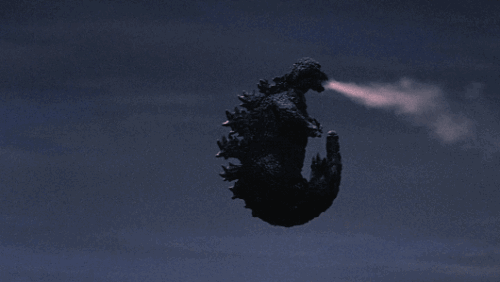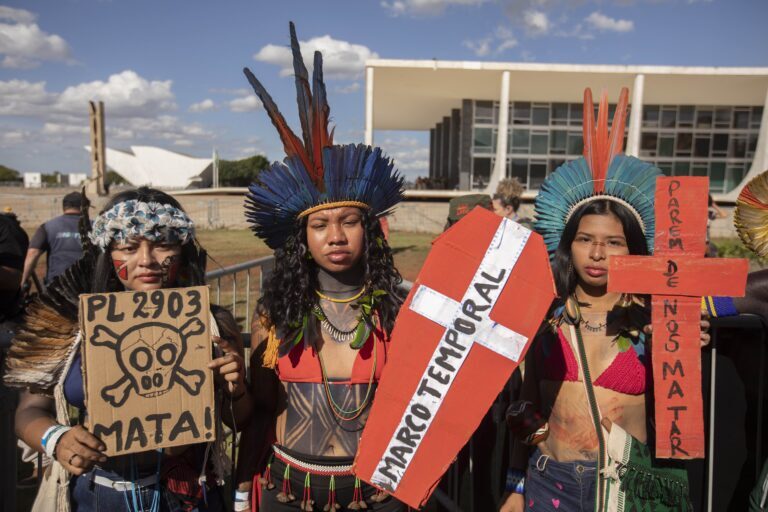- Brazil’s President Luiz Inácio Lula da Silva partially blocked a controversial bill that dramatically violates Indigenous rights, a month after the Supreme Court ruled out its core article.
- While some Indigenous activists lament that the bill wasn’t fully rejected, many hail the partial veto as a win for human rights and the protection of the Constitution.
- The vetoed bill now returns to Congress, where Lula’s decision will be upheld or rejected; if rejected, the time frame bill will be enacted, in a major blow to Indigenous rights and environmental protection, experts say.
- The veto sparked outrage among Brazil’s powerful rural lobby, which vowed to reject Lula’s changes to the bill, although any decision made in Congress can be challenged in the Supreme Court.
Brazil’s President Luiz Inácio Lula da Silva partially vetoed the controversial time frame bill in a move that quashed efforts in Congress to strip back Indigenous rights. It’s a temporary victory for activists, who now wait on tenterhooks as the president’s decision goes back to Congress for a new chapter, where some experts fear the vetoed points will be rejected and the bill will become ratified.
Congress overwhelmingly approved the time frame bill (PL 2903) on Sept. 27, defying the decision of the Supreme Court, which had, just a week earlier, decided that the time frame, thesis, known as marco temporal in Portuguese, was unconstitutional. One of the most contended points within the bill prevents Indigenous people from claiming territories that they were not physically occupying on Oct. 5, 1988, the date of the promulgation of the Federal Constitution — the same thesis nine justices from the Supreme Court ruled out in September, against only two votes. On Oct. 20, Lula vetoed this point in the bill along with several other clauses considered major setbacks to Indigenous rights.
In a statement made to the Federal Senate’s president, Rodrigo Pacheco, Lula declared the bill “contrary to the public interest and unconstitutional.”
The Minister of Indigenous Peoples, Sonia Guajajara, called the partial veto “a great victory” and an indication of the “coherence of the government with the Indigenous agenda.” Indigenous organizations along with the Ministry of Defense and the Ministry of Indigenous Peoples itself had previously called for a total veto, and some activists lament the president’s decision to not fully reject the bill.
“There is no way to celebrate President Lula’s ‘partial vetoes’ of this aberration that is PL 2903,” Beto Marubo, a member of the Union of Indigenous Peoples of the Javari Valley, wrote on social media. “Brazil lives at the mercy of a few anachronistic agribusinesses that change the laws at their pleasure.”
A celebration of the partial veto fails to consider that although the bill was mostly blocked, Indigenous rights didn’t progress, Miguel Aparício, president of the Observatory of the Human Rights of Uncontacted and Recently Contacted Indigenous Peoples, told Mongabay. “It’s apparently a victory because the time frame was rejected, but that only puts us in the situation of the Constitution, which we were already in,” he said. “Conquest means achievement. There is no achievement. It’s staying as we were.”
Despite the dissatisfaction demonstrated by some organizations that defended a total rejection of the bill, the partial block is a triumph, said Kenzo Jucá, a socioenvironmental consultant who has worked with environmental legislation in the National Congress for more than 20 years.
“It was a victory for the legality and constitutionality of the legal regime protecting the territories traditionally occupied by the 266 Indigenous ethnicities of Brazil,” he told Mongabay. “Serious and flagrantly unconstitutional points were vetoed, [including] a thesis that would enable the annihilation of territories and Indigenous peoples in the country in a few years.”


